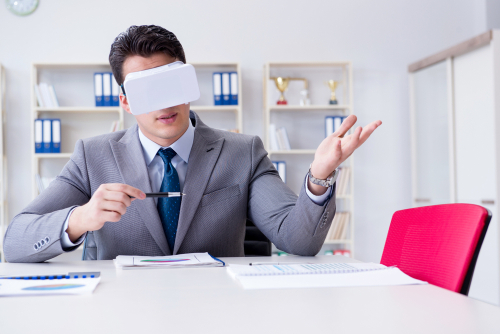Job interviews can really make people feel like they’re out of their natural element. Pre-COVID, job interviews typically meant meeting with a hiring manager in person, trying to find an unfamiliar office, perhaps dressing up more than usual, etc.
But during the pandemic, huge numbers of job interviews switched to a virtual format. Instead of having to find the right office building, interviewees stressed over not having the right videoconferencing app or whether their microphone or camera was working.
Well, job applicants should take note of a new interview format that promises to shake things up even more and add a brand-new source of stress: virtual reality (VR).
Are You Ready for Virtual Reality Job Interviews?
Artificial intelligence (AI) and VR technology mean that job applicants may soon be interviewed by a computer, writes Elizabeth Hotson in an article for BBC.
“Earlier this year students at Sandwell College in West Bromwich put on VR headsets to do some mock interviews. Their avatars—cartoon-like, 3D representations of themselves—were put through their paces by another talking avatar representing the AI software system.”
At the moment, the VR system, made by London-based company Bodyswaps, is being used primarily for applicants to practice interviews and isn’t being used by employers for actual interviews. But, Hotson adds that other companies, like Swedish AI firm Tengai, are already leveraging VR tech for conducting real-world interviews.
Potential for Bias Still Exists
VR and AI technologies may have interesting impacts on diversity, equity, and inclusion (DEI) efforts among organizations looking to add talent. While interviewing with a computer as an avatar may create the opportunity for “blind” hiring, it’s also important to note that these technologies are still developed by humans, and human biases often remain subtly and unintentionally embedded in such tools.
Lin Grensing-Pophal is a Contributing Editor at HR Daily Advisor.

